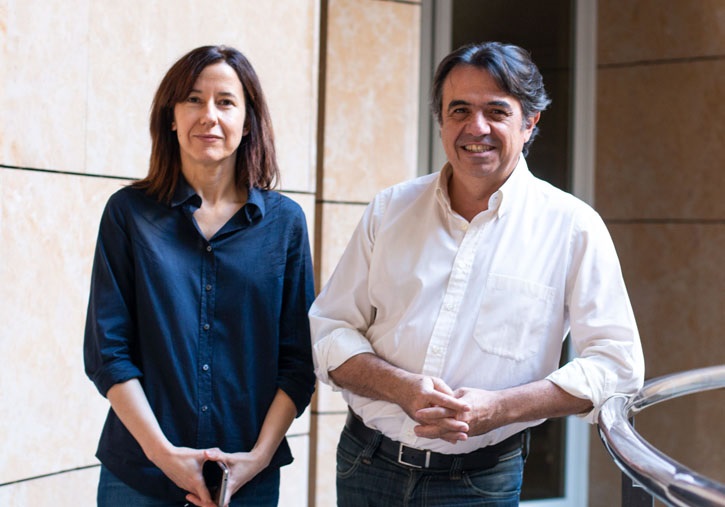More than half of Journalism students believe that the onset and development of cancer are related to the patient’s attitude
- Scientific Culture and Innovation Unit
- October 24th, 2019

A study by the University of Valencia warns of the dangers of cancer myths spread among Journalism students. The work, carried out by Lucía Sapiña and Martí Domínguez, researchers of the Observatory of the Two Cultures, also concludes that the prejudices that relate the use of the mobile phone or the consumption of sweeteners with the development of the disease are established, with 48.2% and 40.2% of the students consulted who believe it.
Among the most recurrent myths, the one that attributes a determining character to the personal attitude in the onset and consequences of cancer stands out, shared by more than half of the surveyed students, specifically by 52.2%. The study has had the participation of 249 Journalism students from the University of Valencia and the CEU Cardenal Herrera University.
The research, which has been published in the prestigious European Journal of Cancer Care, analyses the sources with which the student is informed in matters related to health. Internet is the most used medium (75.1% of students), followed by television (67.9%) and newspapers (47%). Interpersonal relationships are also an important source of information, where the family predominates (61%) ahead of medical staff (43.8%). Globally, these prejudices are more common between the ages of 17 and 19 than in the group of people over 20, according to the research team.
In the article «From sweeteners to cell phones—Cancer myths and beliefs among journalism undergraduates», originally published in English, Domínguez and Sapiña show that students who use social networks and those closest to them (family and friends) to learn about health news have a greater tendency to believe certain myths. For this reason, in the paper they propose that information campaigns be aimed, as a priority, at families, because they are powerful sources of information.
In addition, the study names the risks of excessive informational coverage of the disease, which can contribute to spreading the false idea that everything causes cancer. This prejudice can sometimes lead to an exaggerated perception of the dangers and, at other times, a minimised appreciation of the proven risks. Faced with this threat, the research team suggests reinforcing the health training of Journalism students, since it is during the degree that the knowledge bases of productive routines are built. This work has been supported by the research project FFI2017-85227-R, of the Ministry of Economy, Industry and Competitiveness.
Lucía Sapiña and Martí Domínguez
Martí Domínguez is a doctor of biology and full professor in the Language Theory and Communication Sciences Department of the University of Valencia. He is the director of the Mètode magazine and of the Observatory of the Two Cultures. Meanwhile, Lucía Sapiña is a doctor in Historical and Social Studies of Science, Medicine and Scientific Dissemination. Her interests focus on the relationship between media and cancer.
The Observatory of the Two Cultures is a multidisciplinary group formed by researchers in science communication. Its main objective is to analyse the treatment of science in the media, from the point of view of two opposing visions in society: the scientific and the humanistic one. The Observatory depends on the team of the Mètode magazine.
Article:
Domínguez M, Sapiña L. «From sweeteners to cell phones—Cancer myths and beliefs among journalism undergraduates». Eur J Cancer Care. 2019; 00:e13180. https://doi.org/10.1111/ecc.13180
File in: Recerca, innovació i transferència , Investigació a la UV , Producció científica , Difusió i comunicació científica , Internacionalització recerca , Facultat de Filologia, Traducció i Comunicació , Teoria dels Llenguatges i Ciències de la Comunicació , Grups de recerca , Cultura Científica
















